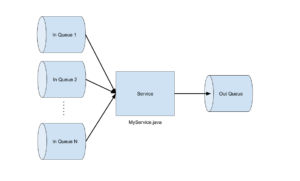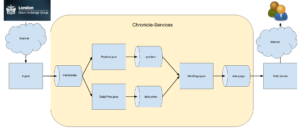Chronicle Platform- New Client
A Malaysian Cryptocurrency Derivative exchange recently went live with their innovative trading portal based on Chronicle Platform Technology. The solution was developed in conjunction with the Chronicle Consultants over several months which involved development of the GUI and also helping the client to skill up their own team to ensure a smooth and successful launch. The success of this project was driven by Chronicle’s unique methodology for building low-latency microservices rapidly but with low defect rates plus the close co-operation with the client to ensure that the technology could match their vision for the exchange and its deliverables including a unique hedging tool that allows users to make automated executable strategies by creating orders that are carried out when conditions and trading indicators are met.
Chronicle Platform delivers a cloud compliant scalable resilient infrastructure, delivering market connectivity through trusted standards including FIX, REST and Websockets. Chronicle Platform provides support for multiple trading protocols including order books and RFQ plus the ability to build market depth either for the exchange or consolidating data across multiple exchanges.
We are seeing an increase in exchanges looking to push into the Institutional Market and Chronicle Platform delivers a solution that has been proven to deliver at all times, even in highly volatile markets and this reliability combined with the development flexibility ensures that Chronicle Platform provides the best solution for this client.
For more information contact sales@chronicle.software
Chronicle Services- Overview
One of the principle design methodologies of Chronicle Software is simplicity which ensures high performance with minimal machine overhead. A prime example of this is the design of Chronicle Services which is our low latency framework for efficiently creating a set of microservices which underpins Chronicle Platform.

This uncomplicated architecture mandates/provides a number of favourable properties including:
- Each service is single-threaded. No need for locks, monitors and concurrent data structures.
- The internal state (if any) can be fully reconstructed simply by replaying message inputs.
- The internal state (if any) and output is fully deterministic given a certain input.
- No need for shared states across threads, JVMs and/or nodes.
- The system capacity can be scaled simply by adding service instances.
- New nodes can be added at any time and may compute its potential internal state automatically.
- Redundant nodes can be shut down at any time.
- The system can be fully distributed.
- The system can be configured to provide high availability.
- In demanding applications, services may be run on the same node.
- Services requiring ultra-low latencies can be pinned down to a pre-allocated CPU.
A practical application for this could be the below example which subscribes to market data from an exchange and provides a web page with the latest prices and positions
